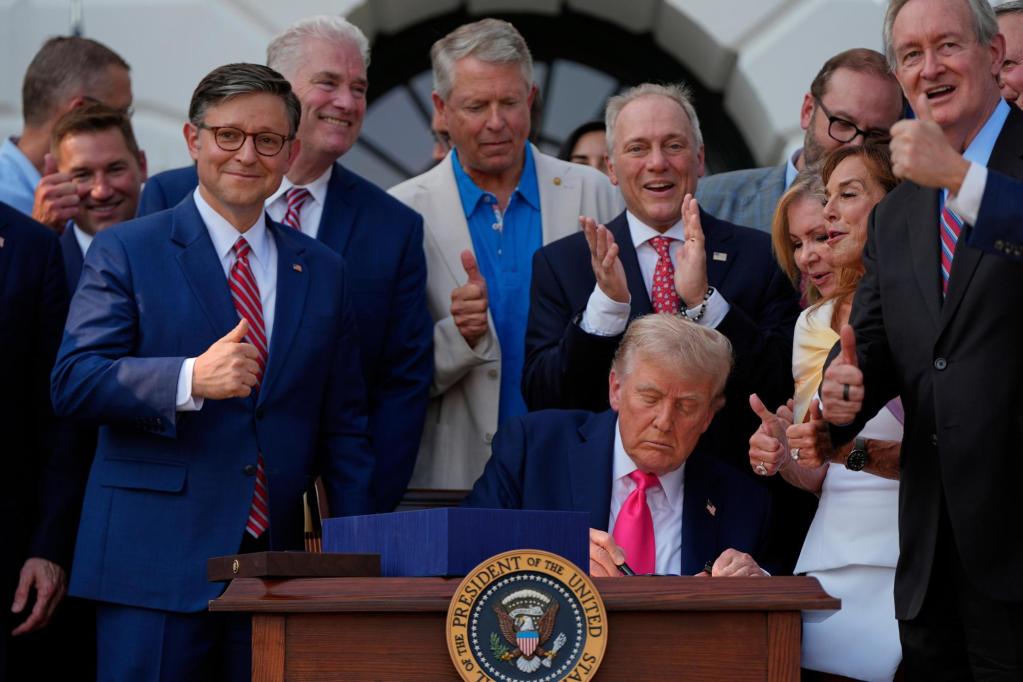Political discourse in the United States has increasingly become a battleground for misinformation, undermining the foundations of democracy and impacting public welfare. During his presidency, Donald Trump is reported to have made over 30,000 false statements, contributing to a climate of distrust and division. This environment fosters fear and dysfunction, with serious consequences for governance and the well-being of citizens.
Congressman Mike Thompson highlighted the stark reality of gun violence prevention, stating, “The only place gun violence prevention is a partisan issue is in the United States Congress.” This reflects a broader trend where ethical responsibilities to the Constitution and the electorate are often sidelined by political maneuvering. The Republican-controlled Congress has been criticized for backing initiatives, such as Trump’s One Big Beautiful Bill Act, which disproportionately benefits the wealthiest Americans while burdening lower-income households. The act reportedly increases after-tax revenues for the top 10% by 2.3% while decreasing those for the bottom 10% by 3.9%. Furthermore, it adds an estimated $4 trillion to the national debt.
These financial policies have dire implications for everyday Americans, with rising costs in areas such as energy and healthcare, alongside a projected loss of health coverage for 11.8 million people. Funding cuts are also evident, with reductions of $16.1 million to public broadcasting services and $2 billion to hospitals in Virginia, jeopardizing rural healthcare access for over 300,000 residents.
Environmental funding is not spared either, as budget cuts impact initiatives aimed at restoring water quality and habitats in the Chesapeake Bay. Ironically, these policies harm many of Trump’s rural supporters, who may find themselves facing reduced services while the wealth gap widens.
Research from the Cato Institute suggests that immigrants, including undocumented workers, do not take jobs from native-born Americans, nor do they significantly impact government budgets. In fact, they contribute to the economy through their tax payments. Yet, narratives surrounding immigration often skew towards fear, with sensationalist media coverage focusing on isolated incidents rather than the broader socio-economic contributions of these individuals.
The political landscape has evolved into one where misinformation acts as a weapon. Robert Kagan emphasizes that the challenge lies with the populace and their beliefs. Many Americans appear to embrace radical elements within their political affiliations, often at the expense of democratic principles. This trend is not new; former President Barack Obama remarked in 2016 that Trump represents a culmination of the Republican Party’s rhetoric and tactics.
During Trump’s administration, the deportation of undocumented immigrants saw a significant shift. The average monthly deportation rate during Obama’s first six months was 36,000, while Trump’s policies led to an average of 4,700 in 2025, roughly aligned with President Joe Biden‘s current figures.
This erosion of democratic norms is compounded by the Republican Party’s increasingly religious and anti-international stance. Mike Johnson, the Republican House Speaker, recently attributed the passage of Trump’s controversial bill to a collective effort of prayer, raising questions about the moral implications of policies that exacerbate poverty and health crises.
The repercussions of such political strategies extend beyond immediate financial impacts, threatening the social fabric and welfare of millions. With 83% of USAID international programs, amounting to $40 billion, being terminated, the potential humanitarian consequences could lead to an estimated 14 million deaths by 2030.
The challenges facing the working class continue to mount, with new reductions in income and social services compounding decades of wage stagnation. The current political climate reflects a shift towards prioritizing elite interests over the welfare of average citizens. This trend is marked by Newt Gingrich‘s advocacy for a “win at all costs” mentality, which has become emblematic of today’s Republican Party.
In summary, the entrenchment of deception and divisiveness in American politics threatens the democratic process and public well-being. Addressing these issues requires a collective commitment to truth and accountability, essential for fostering a healthier political environment and a more equitable society.
